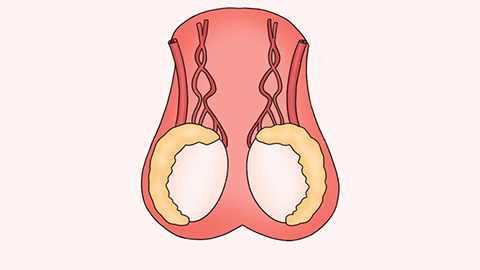What are the symptoms of testicular hernia in males?
Testicular hernia, commonly referred to as inguinal hernia, is a common condition in men. Generally speaking, symptoms of inguinal hernia in men mainly include swelling and pain within the scrotum, a feeling of heaviness or distension, indigestion or constipation, difficulty urinating, and other discomforts. If physical discomfort occurs, timely medical attention is recommended, and treatment should be conducted under the guidance of a qualified physician. Detailed explanations are as follows:

1. Scrotal swelling: When a mass in the inguinal region enters the scrotum, it causes noticeable swelling within the scrotum, typically on one side, and may be accompanied by tightness or discomfort of the scrotal skin.
2. Pain: Patients may experience pain and discomfort in the inguinal region or scrotum. This pain may be persistent or intermittent and may worsen during coughing, straining, or standing.
3. Heaviness or distension: As herniated contents enter the scrotum, they exert traction and pressure on the scrotal tissues, increasing local tension in the scrotum and causing a sensation of distension and discomfort. This feeling usually worsens after prolonged standing or physical activity and may ease with rest.
4. Indigestion or constipation: Inguinal hernias may also be accompanied by symptoms of indigestion such as nausea, vomiting, and abdominal pain, which may result from pressure or traction on abdominal organs within the abdominal cavity.
5. Difficulty urinating: Inguinal hernias may also affect urination, leading to difficulty in passing urine or urinary retention, usually caused by pressure from the hernial mass on the urethra or bladder.
In daily life, patients are advised to maintain a healthy lifestyle, avoid excessive physical exertion, maintain a healthy body weight, and strengthen abdominal muscle exercises, which can help reduce the risk of hernias.








